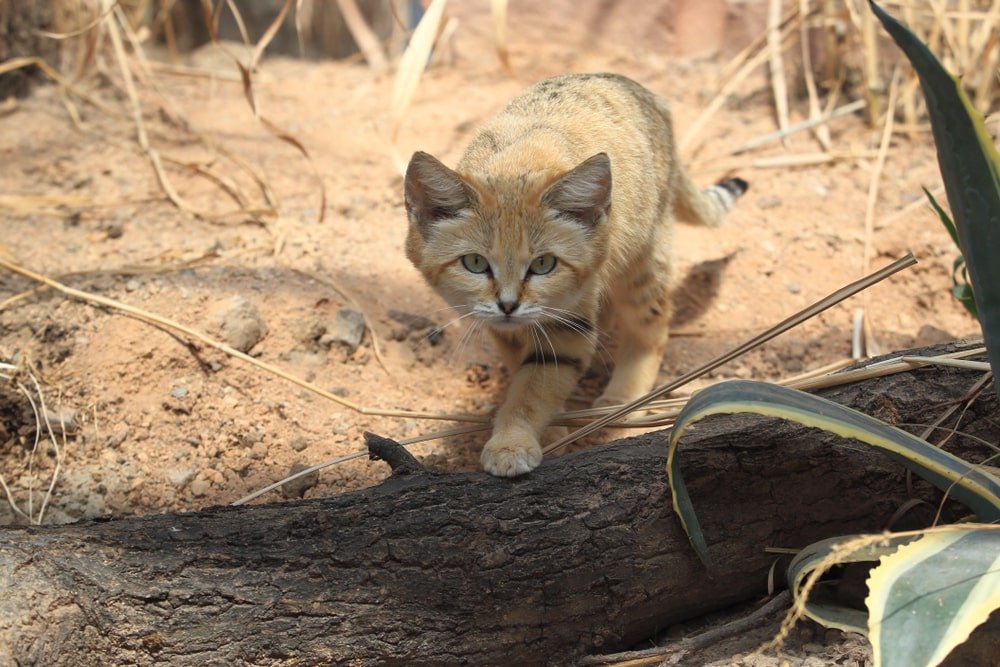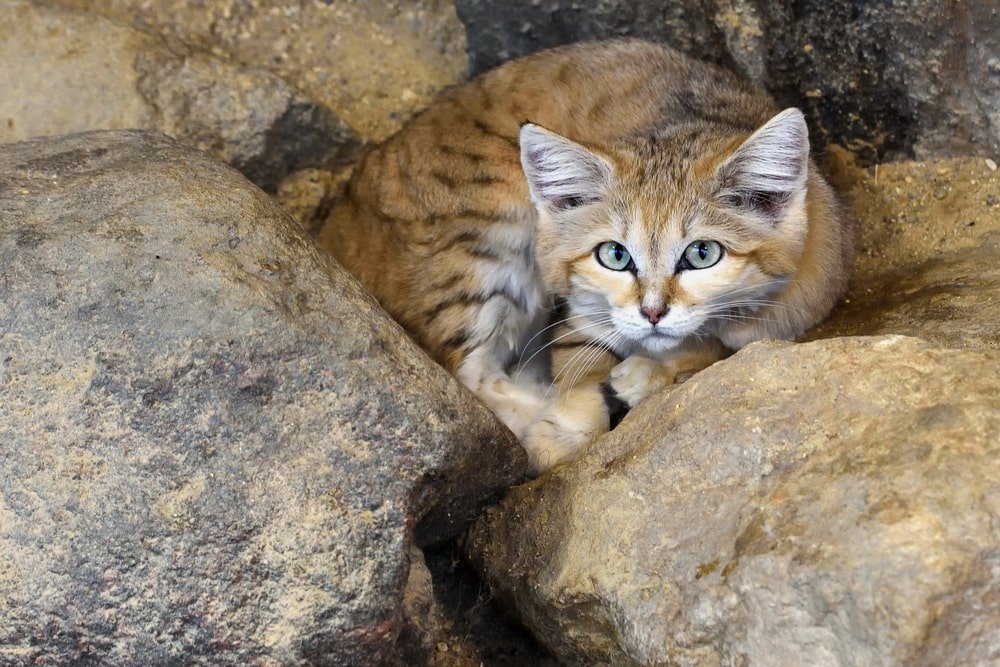
The sand cat, Felis margarita, is a small and remarkably adapted wild cat native to the sandy and stony deserts of North Africa, the Middle East, and Central Asia. Distinguished by its wide head, short legs, and exceptionally large, pointed ears, its most striking feature is its thick, sandy-colored fur, one subtly striped, providing superb camouflage against the desert terrain. Uniquely among felines, the soles of its paws are covered with long, dense fur, providing insulation against hot and cold ground and aiding traction on loose sand. Primarily nocturnal and solitary, sand cats are highly elusive, spending the hottest parts of the day in burrows. They are opportunistic hunters, preying mainly on small rodents, lizards, birds, and insects, obtaining most of their water needs from their prey.

The sand cat plays a unique role in the fragile and specialized desert ecosystems they inhabits. As predators of small desert animals, they help to control rodent and reptile populations, which can prevent overpopulation and the potential impact on sparse desert vegetation. Their presence is a strong indicator of a healthy and functioning desert environment, as they are specifically adapted to these extreme conditions. Given the unique challenges of their arid habitats and the increasing human encroachment and habitat fragmentation in these regions, the conservation of sand cats is crucial. Protecting these elusive felines not only ensures the survival of a truly remarkable species but also contributes to the preservation of the delicate ecological balance of some of the world’s most extreme and often overlooked landscapes.
Every day, wild cats around the world face threats like habitat loss, poaching, and natural climate progression. But hope isn’t lost. With your support, we can protect these majestic animals and preserve their habitats.
Join our growing community of wildlife champions and help create a safer future for all 40 wild cat species.
Zoo-EV is a nonprofit organization dedicated to the protection and preservation of the world’s 40 wild cat species through education, community engagement, and conservation initiatives. Zoo-EV is recognized as a 501(c)(3) tax-exempt organization by the IRS, with the Employer Identification Number (EIN) 88-3636567.